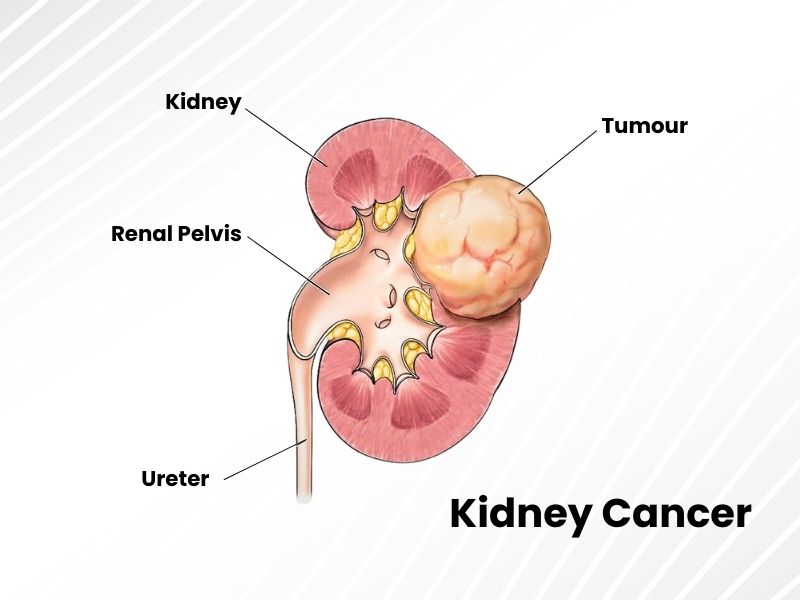Renal tumors, commonly referred to as kidney tumors, have a range of symptoms and are influenced by various risk factors. Understanding these elements is essential for timely diagnosis and treatment. This blog by the renowned urologist in Bangalore describes the common signs of kidney cancer, highlights critical risk factors, and explores modern treatment methods. Discover how advancements in medical science are finding the way for effective kidney tumor management with precision and care.
Common Symptoms of Renal Tumors
Renal tumors present with various symptoms, some of which can be subtle, while others are more prominent. Here are some of the common symptoms to watch out for:
-
Blood in the Urine (Hematuria): One of the earliest and most noticeable symptoms is blood in the urine, giving it a pink, red, or cola-like appearance.
-
Persistent Pain: A continuous ache or discomfort in the side or lower back that doesn’t resolve may be a warning sign.
-
Abdominal Lump: In some cases, a renal tumor can grow large enough to form a detectable lump in the abdomen.
-
Unexplained Fatigue: Feeling unusually tired without an apparent cause may indicate an underlying health issue like a kidney tumor.
-
Weight Loss: Sudden and unexplained weight loss can be a sign of advanced kidney cancer.
-
Persistent Fever: A recurring fever that is not associated with an infection could be an early sign of a renal tumor.
Key Risk Factors for Kidney Cancer
Several factors can heighten the likelihood of developing kidney cancer. These include:
-
Age: The risk increases as individuals grow older.
-
Smoking: Tobacco use significantly raises the risk, although quitting can lower it over time.
-
Obesity: Excess body weight is linked to a higher incidence of renal tumors.
-
High Blood Pressure: Hypertension has been found to contribute to kidney cancer risk.
-
Inherited Conditions: Genetic syndromes like von Hippel-Lindau disease or tuberous sclerosis complex can elevate susceptibility.
-
Family History: Having close relatives who have experienced kidney cancer increases the likelihood.
Treatment Options and Management Strategies
The choice of treatment largely depends on the tumor’s stage, the patient’s age, and overall health. Here’s a breakdown of the primary approaches:
-
Surgical Interventions: Surgery is often the first-line treatment for most kidney cancer cases:
-
Partial Nephrectomy: Only the tumor-affected portion of the kidney is removed.
-
Radical Nephrectomy: The entire kidney, along with surrounding tissues and possibly lymph nodes, is removed. In cases where one kidney is removed, the other typically is capable of maintaining kidney function.
-
-
Ablation Techniques: For patients who are not suitable for surgery, ablation procedures offer non-invasive options:
-
Cryoablation: Freezes cancer cells using a cold gas administered via a needle.
-
Radiofrequency Ablation (RFA): Destroys cancer cells with heat generated by an electrical current.
-
-
Radiation Therapy: This method is recommended for patients with a single kidney or those ineligible for surgery. Radiation is often used to alleviate symptoms like pain.
-
Targeted Drug Therapy: These drugs inhibit cancer cell growth by blocking specific proteins or blood vessels that nourish tumors. Targeted therapy is often an option for inoperable cases or post-surgery to prevent recurrence.
-
Immunotherapy: Immunotherapy strengthens the body’s natural defenses, enabling the immune system to better recognize and destroy cancer cells. It can be used alone or alongside other treatments.
-
Chemotherapy: Although not a primary treatment for kidney cancer, chemotherapy may be considered in cases where other therapies are ineffective.
Conclusion
Renal tumors require an active approach to ensure early detection and effective treatment. By recognizing symptoms early, being mindful of risk factors, and understanding the array of treatment options available, patients and caregivers can make informed decisions. With continuous medical advancements, the outlook for managing kidney tumors is becoming increasingly optimistic.
For those encountering any signs mentioned above or looking for a urologist in Bangalore, schedule a consultation at Shree Srinivasa Urocare for a personalized treatment plan. Early intervention and expert care can make a significant difference in outcomes.

